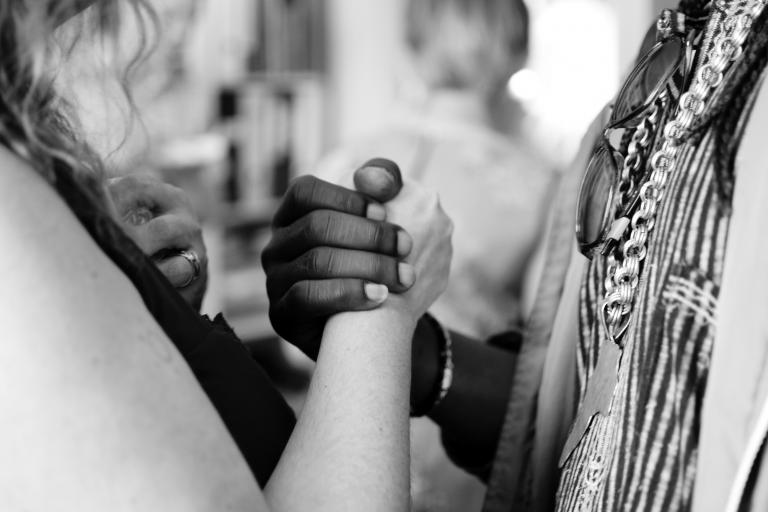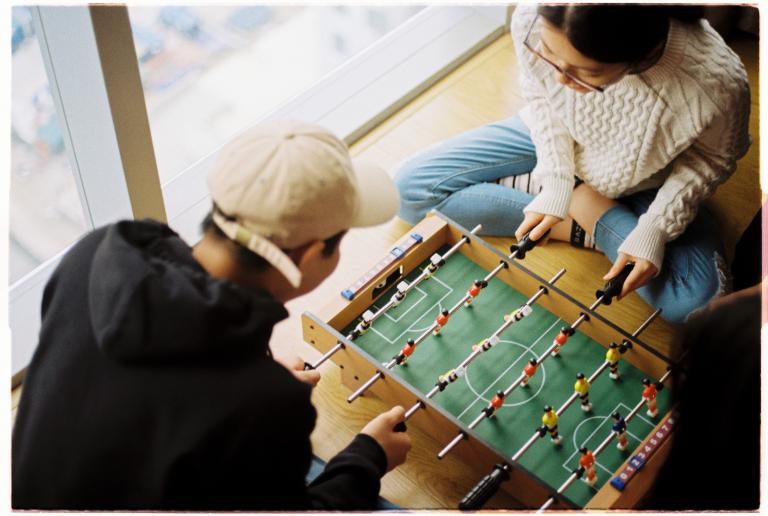It’s no secret that significant community for young adults is a challenge. Everyone is focused on careers or dating and there seems to be this awkward elephant in the room – a lack of meaningful friendship. I read a tweet recently that said, “No one ever talks about Jesus’ greatest miracle of having twelve close friends in his thirties”.
There is no easy answer to this dilemma. Kylie and I have struggled and worked really hard to develop friendships here in New York. We coach young adults and lead a small group for college students. We hear all the time about the struggle to find friends.
Although there are no shortcuts and finding friends is as much art as science, we’ve come up with 4 easy steps that will absolutely make a difference in the adult’s pursuit of meaningful friendship.
1) Amnesia
Step one is to forget about everything you’ve known before. Forget about how you made your old friends or what they were like. You don’t have to delete these people from your life, but some selected amnesia will be helpful in your current endeavor.
The reason is because our past experiences mess with our expectations. New things are different, especially when it comes to friendship. Finding community does not mean finding the exact community you used to have. New things are new.
This may seem obvious, but most of the time we struggle because we think we want what we used to have. That is a lie. We want meaningful community. And it is possible in more ways than the few you’ve already experienced. If the new people you meet are constantly being measured against your old friends, it’s going to feel inauthentic and either you or they are going to bail.
2) Be Open
In the immediate wake of number 1, it is important to be open and humble about finding friends. As kids, or even in college, most of our friendships happen by proximity. Same tee-ball team or triginometry class or neighbors on the block. This is how friendship happens.

We tend to forget this when we’re older. We start to measure people by some impossible standard, some weird magic of chemistry that is an inaccurate account of how friendship happens.
I’m not saying you should invite Freddy Kruger to your dinner party. What I’m saying is that potential friends are all around you. They don’t have to be all-stars or supermodels or stand up comedians. Some of your best friends are going to be people you initially didn’t like. Be open to friendship. Stop acting like you’re on The Bachelor or American Idol or something, and give people a chance.
3) Initiate
Without a doubt, this is the most important step. It is the step you are constantly trying to ignore. The one we all hope to avoid.
INITIATE friendship. Everyone wants it as much as you do. Even the introverts. Even the ones who reject you or pretend to be too cool or too busy for your invites.
We constantly complain about how nobody is initiating friendship with us while we let ourselves off the hook for not initiating it with others. Round and round it goes. Friendship is like a Mexican standoff where everyone is pointing the guns at each other but no one will shoot first. Pull the trigger (metaphorically).

Invite someone to a sporting event or concert. Ask a coworker to coffee or lunch or even dinner at your place. Someone has to take the first step. And most times it has to be you.
4) Check Yourself
We talk a lot about values on this blog. A self-awareness concerning your values is an important part of finding friends.
What are your values? Why do you want friends? What values will they meet? Is it healthy to invite friends to fulfill those values? Do I have healthy expectations of the people around me in relation to fulfilling my values?
We are so hesitant about initiating friendship because having friends is an important subset of at least one of our major values. This is true for every person. Belonging. Worth. Security. Freedom. Whatever the value, friendships have a part to play. The fear of rejection is a threat to our values. And so, too often, avoidance is an easier option.
Knowing exactly how this looks in your life can help you name your fears (which can strangely weaken them, like having the courage to say Voldemort’s name). If we are aware of our values, how they’re being threatened, and how they might be enhanced by friendship, we have established a better understanding of why this means so much to us. And that understanding can reinforce our commitment and give us the courage necessary to persevere.












